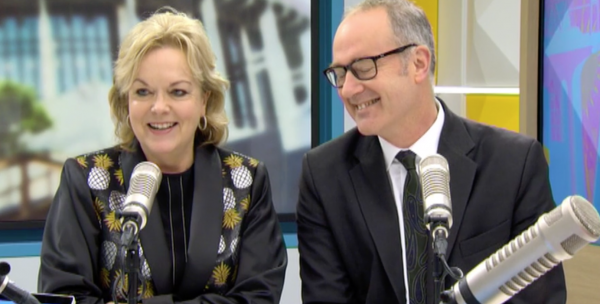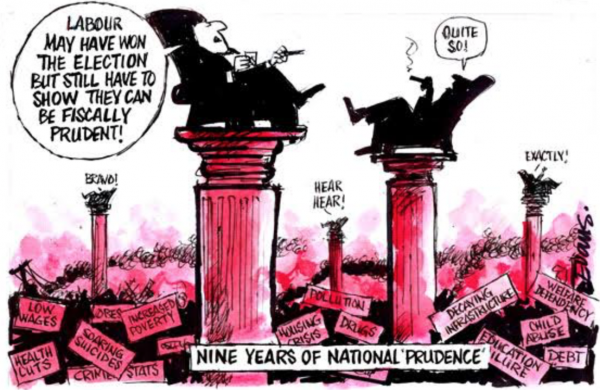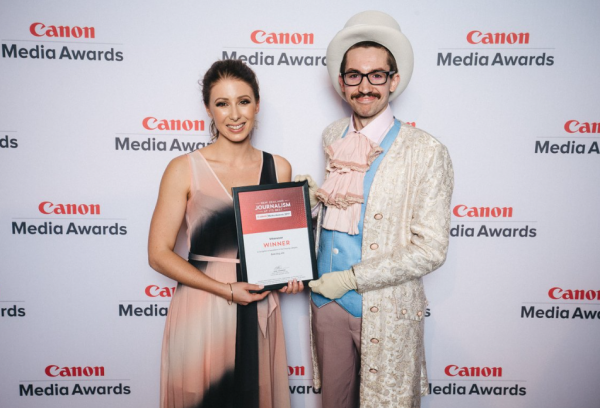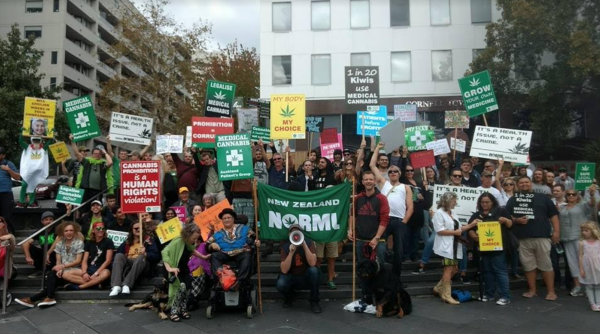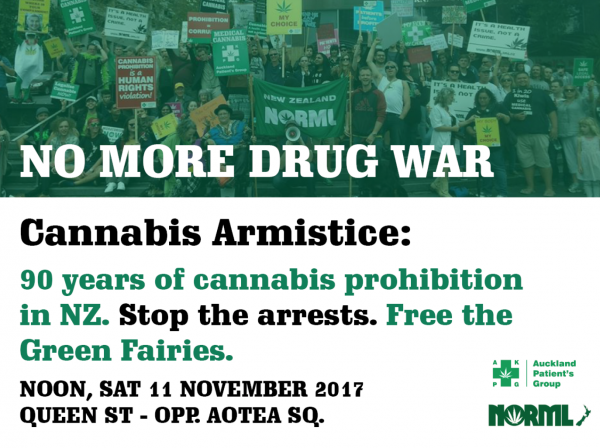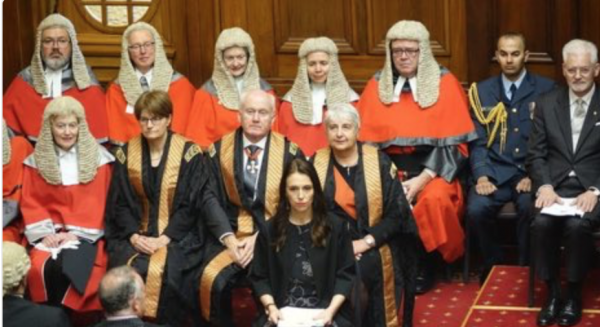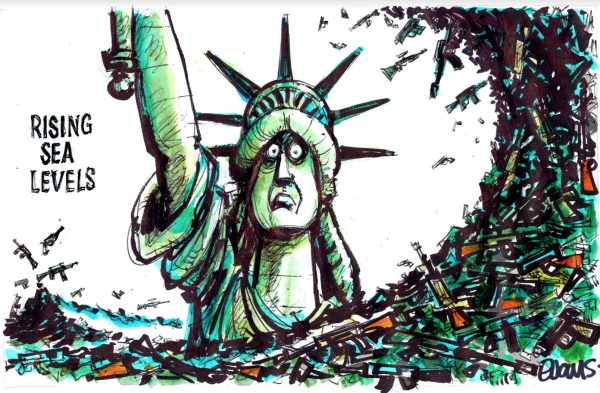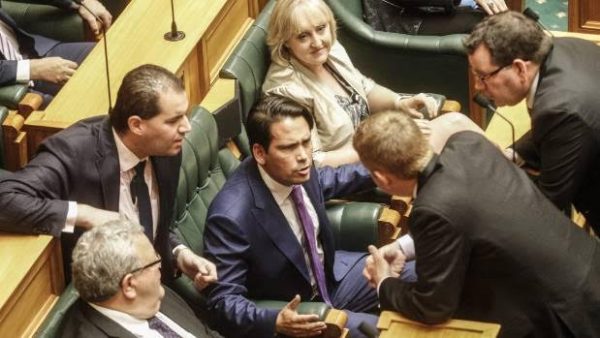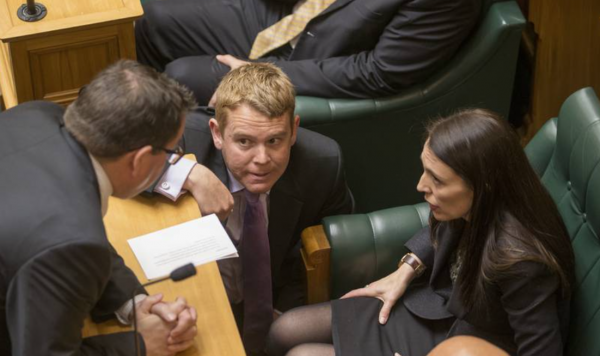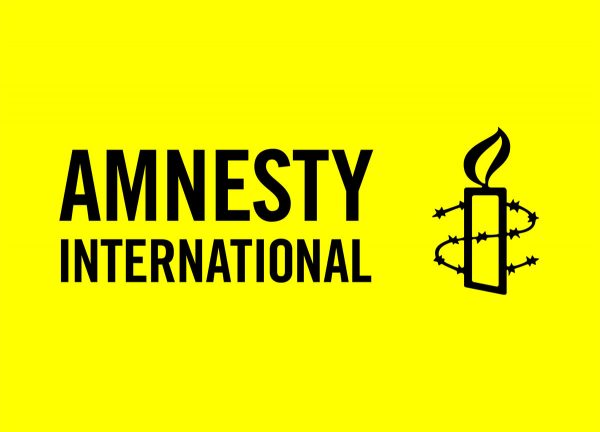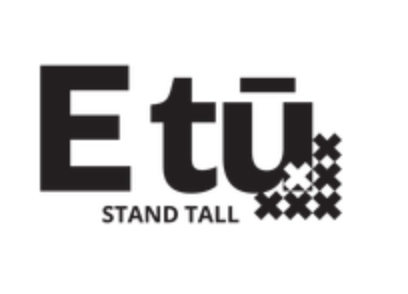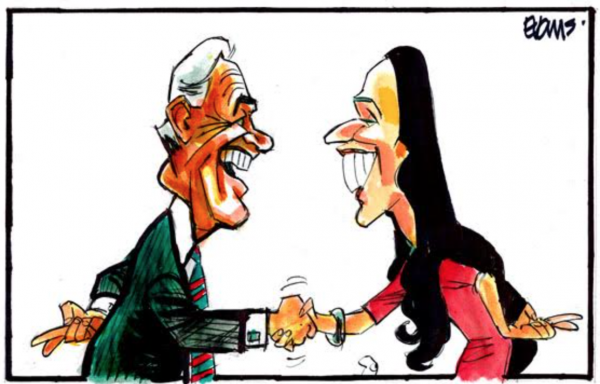
Well this is interesting, isn’t it. No sooner does New Zealand start talking openly about pursuing a trade policy that is more independent of the Atlanticist E.U.-American block, than the threats start being issued unto us by their diplomats and local mouthpieces; with pliant domestic (yet invariably foreign-owned) media haplessly buying into the hysteria.
Take a look at this recent article from one of our leading newspapers – the New Zealand Herald – on the prospect of the New Zealand Government honouring a promise to the nationalist New Zealand First party, to thaw trade-relations with Russia.
If this were your only source of information on the subject, you could be forgiven for presuming that New Zealand’s push for closer economic relations with the Russian Federation was some sort of conspiratorial effort that had been a closely guarded secret – the result of clandestine influence-peddling by a Russian ambassador meeting with the man who’s now NZ’s Deputy Prime Minister and Foreign Minister earlier this year.
And which is seemingly set to usher in a serious crisis for little old New Zealand as our more ‘traditional’ trade “partners” and “allies” gear up to turn their backs upon us as we shun their incipient “good-will”.
But all of this is so completely and utterly fictional I’m almost surprised it wasn’t accompanied by a breathless set of claims that Putin somehow *personally* hacked our recent Election. It’s simply that far fetched.
Let us examine the allegations being made here one by one – and in so doing help to shine a light on what’s REALLY going on here.
The first ‘odd contention’ in this article is that the trade-push is somehow an “unheralded policy” which was not talked about prior to the Election, and was largely unknown even as recently as last week – being sprung out in such a manner as to suggest something untoward or unpalatable was afoot.
This is manifestly false. New Zealand First has been continuously raising the serious issue of our country being locked out of one of the largest beef and dairy markets on Earth [heading for second largest and already second largest, respectively] over a pretty substantial swathe of the previous Parliamentary Term; issuing numerous press releases, asking Questions of the Government in Parliament, and engaging in other political efforts to try and get some traction of the issue for much of the last three years.
Indeed, I even wrote an article on exactly this matter some weeks ago – openly posing the question before the results of coalition negotiations were even a blip on the horizon, as to whether New Zealand First regardless of their choice of coalition partner [the more globalist-neoliberalist inclined National Party; or the somewhat better social-democratic-with-neoliberalist-characteristics Labour Party] might be able to effectively secure progress on this long-standing area of concern.
Or, in other words – if New Zealand “journalists” truly believe that this is an “unheralded policy”, it can only be because they have neglected to pay anything even loosely resembling proper attention to the course of Parliamentary politics in this country for the last three years and longer.
The second ‘big’ claim made in the article – on both an implicit and outright explicit level – is that the further pursuit of warmer economic relations with the Russian Federation will somehow be disastrous, as it risks imperiling our extant trade with the European Union.
And, to be sure, the figure of some twenty billion dollars per year in NZ-EU trade does sound mighty impressive as compared to the $417 million we did in 2016 with Russia.
Except let’s take a closer look at those figures. The first, of course, being that it’s hardly fair to compare our trade with a country we have foolishly been subjecting to substantial trade-sanctions for some years now [i.e. Russia] with a trading-bloc we’ve poured every possible effort into securing stronger economic interchange with pretty much for as long as I’ve been alive. If we HADN’T had Russia under sanction over this period, and had instead been more amicable to the aforementioned 2nd largest importer of dairy products [our key export, apparently] … I do not feel at all questionable in outright stating, we would most certainly be trading billions of dollars more in their direction.
But the second point – and the one that really shows the paltry paper-mache of the pro-E.U. voices’ stance – is that a very sizeable portion of that twenty billion dollars of trade with the E.U. … is actually comprised of the $5.3 billion dollars worth of exchange we undertake with the United Kingdom specifically.
You know, that United Kingdom which recently voted to *leave* the European Union; which has endlessly been constrained in just how much of our produce it’s been able to take *because* it was part of the European Union; and which we’re presently even now [and with much less fan-fare and objection] pursuing a free trade deal with.
Or, in other words – regardless of what the European Union thinks, we are very shortly set to deal directly with our largest constituent market over there WITHOUT the ongoing interference of Brussels or French farmers … and do so in such a manner that we will once again be gaining billions of dollars worth of trade in addition to what we already have in that direction.
Meanwhile, while the European Union can huff and puff and threaten all it likes that it will continue to defer New Zealand’s hoped-for Free Trade Deal with the E.U. – the plain fact of the matter is that they have done exactly this pantomime act of dragging their heals in response to New Zealand’s ongoing efforts to gain better access to their market for some decades now. And with ‘good’ [from their perspective, at least] reason.
Our agricultural produce is simply of such quality and low relative price that the extant suppliers of the domestic market they seek to protect from our superior output will NEVER concede to ‘going quietly’ on allowing our exports in unmolested. In exactly the same manner that America almost invariably balks at including agricultural produce in the various Free Trade instruments that it occasionally feigns interest in such as the T.P.P.A.
To be fair, the E.U. HAS recently shifted its position on this somewhat with regard to us – upgrading the timescale for a hypothetical NZ-EU FTA from “when Hell freezes over” to “Magic Eight-Ball Says: Answer Unclear – Try Again Later”. Although as far as I can tell, the main reasoning for offering to perhaps, maybe, possibly, if we feel like it begin the opening round of talks for such a deal in the indeterminate future has less to do with a sudden thawing of French Farmer or Brussels Bureaucrat sentiment to Anchor Butter … and much more to do with the imminent prospect of the British beating them to the punch and securing a Free Trade Agreement with New Zealand [i.e. a rather drastic shift of the British away from buying from Europe through to buying from Aotearoa] within the next two years.
Or, phrased another way – the European Union had no interest in ‘playing nice’ with New Zealand on trade policy up until they became worried that they’d lose out due to both us and a key trading partner of everybody involved going elsewhere first.
I therefore take these posturing European Union diplomat statements about how they’ll view our efforts with Russia in a “very negative” light as the tantrums of a toddler-state conglomerate rather than a serious commentary about likely future prospects.
If the European Union never intended to give us a fair Free Trade Agreement, and particularly in a reasonable timescale – then we have lost absolutely nothing by pursuing better associations with other markets in possession of vastly more growth potential for us, in the mean-time.
And if they WERE serious about suddenly caving to inevitability as applies greater economic interchange with New Zealand – then this is a position they have had to be browbeaten into by a combination of one of their largest constituent markets going elsewhere, and New Zealand looking to join it.
Which means that our own movements toward warmer economic interplay with Russia will have a positive and spurring effect upon our trade relations with Europe as they bend over backwards to attempt to entice us ‘back’ into “their” sphere of influence/suzerainty with promises of shiny export-dollars.
To state it plainly – despite the rather undiplomatic rhetoric from E.U. Ambassador Bernard Savage [which was judged a sufficient faux-pas as to be being backed away from by the E.U. Embassy here later in the week], we here in New Zealand have almost certainly lost nothing as applies the E.U. from pursuing better relations with Russia – and instead, may yet gain, as a result, capaciously from them in this area through our subtle and canny approach to realpolitik on trade.
The third prong of this bizarre [yet in retrospect, entirely expectable] full-frontal fact-free assault upon New Zealand pursuing an independent foreign policy on the global, geopolitical stage comes from none other than the loudest NeoCon mouth-piece presently given air-time in our media and academic spheres today. A professor of International Relations at Auckland University by the name of Stephen Hoadley, whom I’ve formerly had the displeasure of being lectured by back when I was an UnderGrad at the same institution [as an aside, another of my former International Relations lecturers – Dr Jian Yang – is presently *also* coming to prominence as the ‘potential’ agent of a foreign power within our politics … leading me to question whether there’s a puppet-string hidden under seemingly every moss-encrusted rock one cares to turn over on the economic right of our politics these days].
Now, to give you an idea of just how Neo-Conservative Hoadley is … this is a man who was still defending the American invasion of Iraq as a fundamentally principled and correct action to his classes right up, presumably, to the present (he still point-blank refuses to acknowledge the way this created the present disastrous situation with ISIS etc.). To give perhaps better feeling for the way in which he uses his prominent position within our politico-academic ecosystem here in NZ, one of his more recent works attempted to stop academics writing about American foreign policy from using terms and phrases like “hegemonic”, “militaristic”, “exploitative”, “provocative of terrorism”, “destructive of international order” [on that score, i partially agree – at present, unipolar hegemony IS the ‘international order’ – hence the lack of desire on the part of some actors to change it], and “imperial”.
He further absolutely recoils from the thought of anybody using the term “imperialism” to describe the modus operandi and ultimate goals of American actions on the international stage; instead insisting that “analysts” basically polymorph into (geo-)political PR spinners for the latter-day American Empire; lest people speaking frankly and accurately about the ambit of American policy trigger serious resistance to same.
Or, in other words, when it comes to the worth of Associate Professor Hoadley’s opinion on a matter of a country choosing to act in its own interest rather than towing the Atlanticist ‘party-line’ … anyone acquainted with the corpus of his work can immediately see that it is best understood as being printed on two-ply – and for the American sphincter.
His ‘concerns’ about us not standing in absolutely slavish ‘solidarity’ with “like minded Western countries” are pretty much exactly the same as the ones he (and others like him) put forward to attempt to push New Zealand into getting involved with various American military adventurism in the Middle East over the course of the last decade and a half. Their arguments have always been that it is apparently impossible for us to remain on amicable terms with other countries if we offer even the slightest bit of actual substantial criticism of their respective foreign policies; or refuse to “pay the price” of “friendship” by putting New Zealand bodies on the line in THEIR fights overseas.
And to be fair, as we can see from both the American dropping of a prospective Free Trade Deal with NZ in the aftermath of our refusal to fight in Iraq in 2003 – as well as the subsequent exchange of lucrative milk contracts for Kiwi troops – this certainly does appear to be exactly how the Atlanticist block views our relationship.
There’s a term for the sort of sustained interaction wherein continued good-treatment is conditional upon the exchange of bodies and money … and it CERTAINLY isn’t “friendship”.
But did any of these ‘bleeding heart Neocons’ protest about New Zealand seeking closer economic relations with America at the very same time as the latter was engaged carrying out an illegal invasion of a sovereign nation?
Of course they didn’t!
Because their sentiments on these matters – in this case, their apparent trenchant objections to New Zealand chartering an independent course on matters economic – are not actually “ethically” based. Nor are they even, really, “economic”.
Rather, they are solely concerned with the great dance of Geopolitics. And in service of that agenda, men like Hoadley or this European Union Ambassador will deploy almost any form of rhetoric or other inducements in order to keep ‘their’ puppet-countries and client-states sitting on the “right” side of the table.
Still, it’s not like the forces arrayed against New Zealand pursuing an independent foreign policy and lucrative trade opportunities are exclusively external, either. As we can see from the article, our very own [Inter] National Party has also lined up to take pot-shots at our new Government’s incipient new direction.
Although I must confess it a bit rich that this criticism is coming from, once again, the same organization which was gearing up to trade away our long-standing anti-nuclear policy to the Americans in clandestine meetings, and whose present Leader was previously adamant that New Zealand ought to have gone to Iraq in 2003 at the behest of the Atlanticist ‘Coalition of the Willing’.
To put it bluntly, there is simply no equivalency to be made between the NZF-Labour Government seeking a trade-deal with Russia … and the National Party who formed our previous Government outright baying to partake of an illegal war alongside the Americans – even if, as it now turns out, there was the potential inducement of a trade deal with the Americans on the table at the time.
Meanwhile, the statement from Winston’s predecessor as Foreign Minister – the National MP Gerry Brownlee – that Winston had met with the Russian Ambassador far more frequently than Brownlee over the latter’s tenure, does not reveal anything untoward. Unless Brownlee genuinely thinks (no doubt as a result of reading too many James Bond novels) that the Russians have developed mind-control pheromones or something, it does not seem plausible that simply meeting with a diplomat is cause for alarm. [This despite the Herald’s journalist deliberately invoking the shadowy specter of alleged Russian “hacking” of the recent US General Election and supposed improper influence over US President Donald Trump. I am genuinely surprised at this point that no serious media outlet has yet stooped so low as to outright allege that Russia has hacked Winston!]
Indeed, I read the situation entirely differently. Namely, that Winston – as arguably our best Foreign Minister in decades, during his previous tenure in the role – was keeping an ear to the ground and diligently fact-finding for his efforts in Parliament on trade policy, particularly as pertains Russia … whilst Brownlee, by not meeting on even a single occasion with the Russian Ambassador over the entire course of his time as Foreign Minister, was engaged in a SERIOUS dereliction of duty!
With that in mind, it is a shameful thing indeed that Brownlee has attempted to turn his laziness into an assumed “virtue” in this regard .
To sum up, then – it does indeed appear that there is something of a ‘shift in the wind’ in both New Zealand’s foreign policy, as well as the Geopolitical ‘game’ more generally. The trade winds are now blowing to the East, whilst naught but ‘hot air’ and the whiff of sulfur appears to emanate from the ‘Old Empires’ on either side of the Atlantic.
New Zealand has, for the longest time, attempted to maintain cordial relations with the European Union and America in the vaguest, vainest hopes that we might one day be able to be treated with fairness and dignity by either economic unit on matters of foreign and trade policy.
Thus far, our hopes have largely proven futile – and after some decades of waiting upon an improvement in either situation, it now appears that our national patience has worn seriously thin.
At the same time, we have found ourselves confronted with a serious opportunity in the form of a resurgently prominent Russia; and it would appear on the face of it that there are no onerous demands for our militarized loyalty or diplomatic posturing being placed upon us by this Great Power in exchange for trade. This is, obviously, in rather direct contrast to both the E.U. and the US – and *especially* the pair of them together.
The absolute furore from a number of quarters over the prospect that New Zealand might once again take back control of our own economic and geopolitical destiny … rather than endlessly sitting on the sidelines hoping against hope to be picked for fair play … is thus absolutely terrifying to the mandarins and the mouthpieces in each of the Atlanticist centers of power.
Because, put quite simply, it represents the tangible new reality that they are no longer in control of events and other places.
And that their time as would-be charlatan Chakravartins is rather swiftly drawing to a close.
Good Riddance. And disregard the shamelessly perfidious ‘talking heads’ who dare to say otherwise.
As we enter into the incoming Age of Multipolarity, New Zealand is already set to do very well by remaining *well* ahead of the curve.
Long may we prosper as a result.


